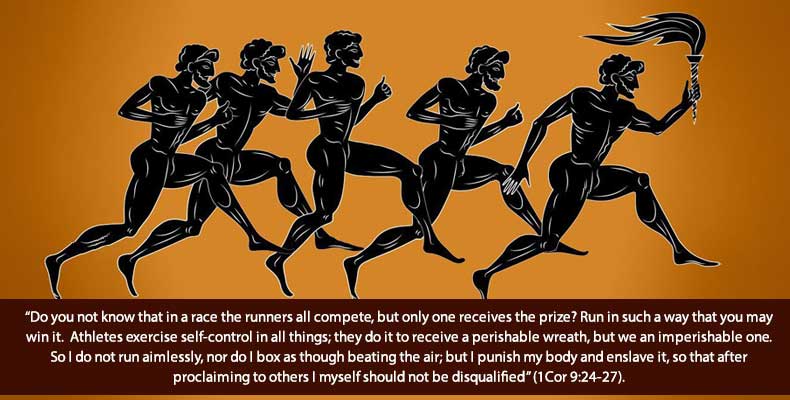“Citius, Altius, Fortius – Communiter.” (=Faster, Higher, Stronger – Together)
This is a familiar phrase during the Olympics for decades. It is the Olympic motto, in Latin, after all. The phrase originally carries only three words. This year at the Tokyo Olympics, “communiter” was added. This struck me as a fitting addition because it harmonizes with similar expressions that we often hear and use in papal, ecclesial and congregational documents. “Communiter” resonates with “synodality,” “walking together,” “fraternity,” “collaboration”, “community”, “universality”, “interculturality”. Applied whether in sports or life in common (religious, civil, social, political, economic), it pulsates with “unity in diversity” which respects the individuality and uniqueness of individuals, regardless of color, creed, culture, social status and age of the person. The word also points to our reality of being “in the same boat” in this uncertain times of the pandemic. “Communiter,” concerning our mission as “artisans of communion,” challenges us to live in harmony in the community and accomplishing our mission as “community,” which can even extend to taking care of the “common home.”
The words “citius, altius, fortius” have great motivating value especially for the Olympians. Translating this motto into action has, in fact, captivated millions of spectators all over the world even if, unlike in the past Olympic games, the “greatest show on earth,” was more virtual than in person because of the still raging pandemic. Watching the games, we are enthralled how these words are transformed by athletes into physical excellence, giving their everything to win a medal. One who won a silver medal said, “It represents my life.” Another winner of the gold was prodded by his motto, “If you persist, you conquer.” An aspiring winner declares, “I want to reach the absolute top.” Finally, another says, “I want to be the best version I can be.”
The Olympic motto continues to pack electrifying results for those who won, and even for those who did not win. The results came from many years of total dedication to the Olympians’ chosen sport, some of whom have already participated in two or four Olympics. A few have already won two or three gold medals. At this juncture of their life, training is a full-time profession, rearranging priorities of their life, even leaving loved ones, familiar grounds and undergoing all kinds of hardships and deprivations. In other words, it is a life of untold sacrifices. One, after getting the first gold for her country for almost a century of participation in the Olympics, cried with joy and at the same time confessed, “I missed so much my family, my friends, my comfort zones for one year. I wanted to quit!”
The Olympics 2020 in Tokyo, postponed for a year because of the health emergency, has also stirred in me its transcendent side beyond the mundane showcase of “citius, altius, fortius.” With this thought, I remember immediately our Father Saint Paul. Was he an “Olympian” of some sort? If Olympians are committed to rigorous “formation” in order to win a crown of perishable metal, Saint Paul is an extraordinary inspiration for athletes who are aiming for a “crown that never perishes.”
Saint Paul surely knew about the ancient games in Olympia, Greece in which he compares following Christ to a race. These words of his sound like an athletic “formation Iter”: “Do you not know that in a race the runners all compete, but only one receives the prize? Run in such a way that you may win it. Athletes exercise self-control in all things; they do it to receive a perishable wreath, but we an imperishable one. So I do not run aimlessly, nor do I box as though beating the air; but I punish my body and enslave it, so that after proclaiming to others I myself should not be disqualified” (1Cor 9:24-27). Here he reveals his motivation for “racing”: “I forget what lies behind but straining forward to what lies ahead, I continue my pursuit toward the goal, the prize of God’s upward calling, in Christ Jesus” (Phil 3:13-14).
If Saint Paul made himself “form” for us in order to be “Saint Paul living today,” then we Paulines should be “Olympians” for Christ the Master. Reaching the goal goes through the process of “Christification” by racing on the “four wheels.” And for this limited space, I would like to consider only the aspect of our mission, as apostle-communicators in today’s culture of communication. This is one wheel of our Pauline life where we can “train”, “strain forward” for the rest of our life towards the finish line, not necessarily in record time. For the timing is God’s not ours. What is asked of us is perseverance and joyful cooperation with God’s grace, not by individual performances but together with others, starting from within our community.
With regard to our mission, in the spirit of “communiter,” our Blessed Founder reminds us that “everyone is required and can exercise the apostolate in some form… The true apostolate is a giving of oneself, in opposition to selfishness, personal interest, vainglory, the foolish desire to emerge. The apostolate therefore presupposes the spirit of sacrifice; sacrifice of money, time, health, esteem. It includes disappointments, criticisms, opposition, often even from those we least expect it. Perhaps even from people whose eternal well-being is sought, or who received benefits” (CISP, 560). With apostolic courage, however, the Pauline has “to face difficulties, lack of success, and hard work … always ready to declare with the Apostle of the Gentiles: ‘Who will separate us from the love of Christ?’” (AE, 394). Loving Jesus, in fact, helps one to carry gladly the load of the “weariness, the discouragement, the disappointments” of the apostolate (HM I, 1941, 82).
While individual sports get more attention and reward, we Paulines should prefer the team sports as a paradigm to follow in accomplishing the mission. The running in synergy of the four wheels of the Pauline cart is a vital expression of “communiter,” if we want to reach the finish line without ending on the sidetracks. And Blessed Alberione would still insist on this for us today as an underlying motivation in accomplishing the mission: “working for the glory of God and the good of souls” by which we gain for ourselves the “crown of glory that never perishes,” the “abundant life,” the “eternal life.” Children of the same Father-form, we might as well affirm with Saint Paul when nearing the finish line: “I have fought the good fight, I have finished the race, I have kept the faith. From now on there is reserved for me the crown of righteousness, which the Lord, the righteous judge, will give me on that day, and not only to me but also to all who have longed for his appearing” (2Tim 4:7-8).



